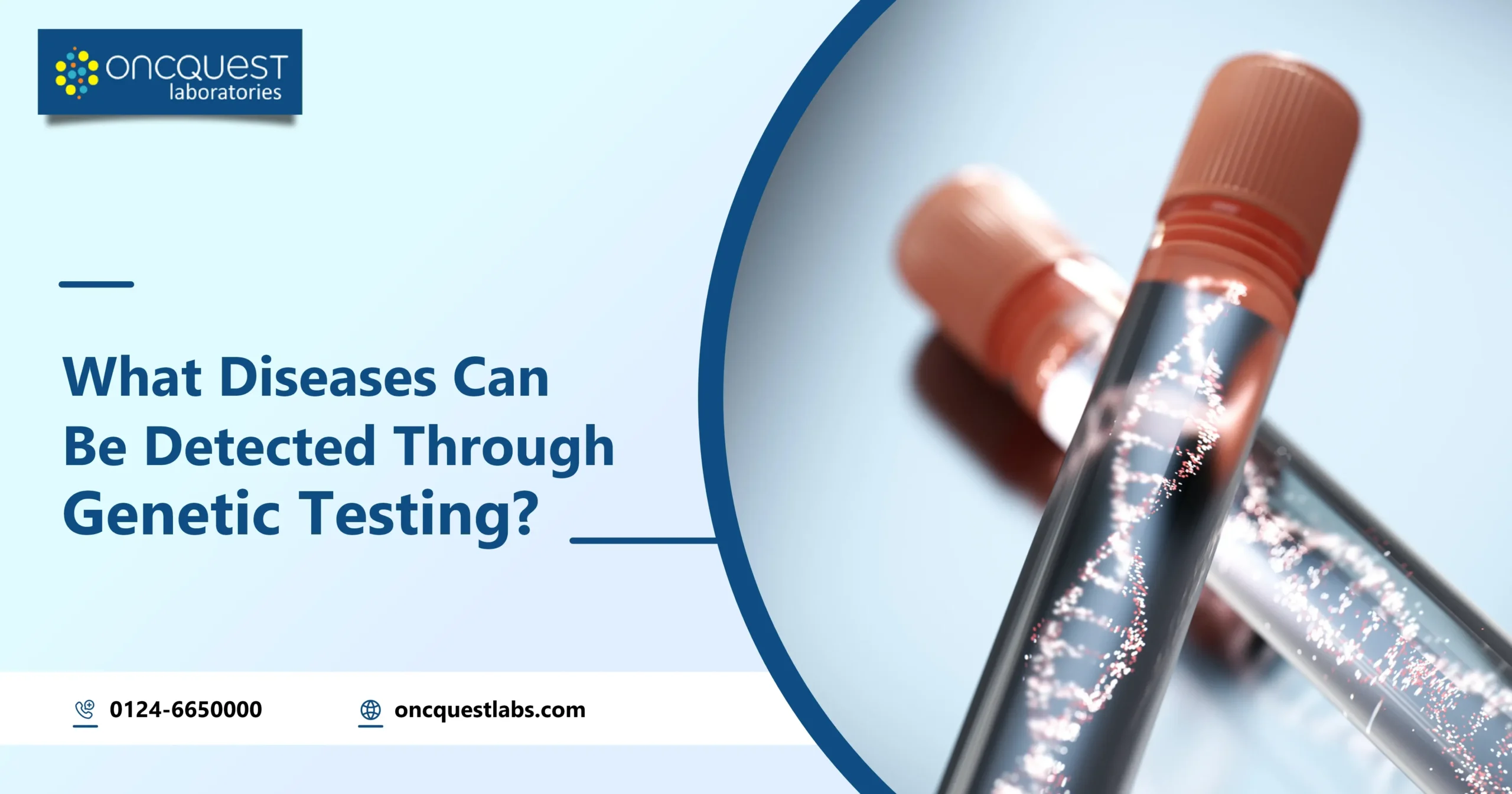Hey there! Ever wondered how your body’s instruction manual, aka your genes, can tell a story about your health? That’s where genetic testing comes in – like a special decoder for your DNA!
In this blog, we’re going to chat about the cool things genetic testing can reveal, especially when it comes to health. Imagine having a sneak peek into whether you might inherit certain conditions, or finding out if there’s a way to lower your risk of certain diseases.
So, get ready to dive into the world of genetic testing with us. It’s like a superhero power for understanding your health better and making smart choices for a happier, healthier you!
Contents
What is Genetic Testing?
Genetic testing is like a health detective for your DNA. It involves looking at your genes, the tiny instructions in your cells, to see if there are any clues about your health. This process helps reveal if you’re at risk for certain diseases, if you might pass them on to your kids, or even how your body responds to certain medicines. It’s a way to unlock the secrets hidden in your genes and make informed choices about your well-being.
Breaking it Down: How They Check Your Genes
1. Sample Collection: A small sample of blood, saliva, or tissue is collected.
2. DNA Extraction: Scientists extract DNA from the sample, which contains your genetic information.
3. Genome Analysis: The extracted DNA is analyzed to identify specific genetic variations or mutations.
4. Interpretation: The identified variations are interpreted to assess your risk for certain diseases or conditions.
5. Report Generation: A comprehensive report is generated, providing insights into your genetic makeup and potential health risks.
6. Consultation: A healthcare professional discusses the results with you, offering guidance on preventive measures or tailored healthcare decisions.
Genetic testing is a powerful tool that brings personalized information about your health, enabling you to make informed choices based on your unique genetic profile.
Types of Genetic Tests
There are various types of genetic tests, each serving specific purposes:
1. Diagnostic Tests: Identify specific genetic conditions in individuals showing symptoms.
2. Carrier Screening: Determines if a person carries a gene for a genetic disorder, which may be passed on to their children.
3. Prenatal Tests: Conducted during pregnancy to detect genetic abnormalities in the developing fetus.
4. Newborn Screening: Identifies genetic disorders in newborns, allowing early intervention for better outcomes.
5. Predictive and Presymptomatic Testing: Assesses the risk of developing a disease before symptoms appear, aiding in preventive measures.
6. Pharmacogenomic Testing: Analyzes how an individual’s genes may affect their response to medications.
7. Research Genetic Testing: Involves testing for scientific studies, contributing to the understanding of genetic factors in various conditions.
Each type of genetic test serves a specific purpose, helping individuals and healthcare professionals make informed decisions about health and potential risks.
What can Genetic Testing Detect?
Genetic testing can unveil various aspects of an individual’s health, including:
1. Risk for Genetic Disorders: Identifying the likelihood of inheriting or passing on certain genetic conditions.
2. Carrier Status: Determining if an individual carries a gene for a specific disorder, which may be passed on to their children.
3. Prenatal Abnormalities: Detecting genetic abnormalities in a developing fetus during pregnancy.
4. Newborn Screening: Identifying genetic disorders in newborns for early intervention and treatment.
5. Pharmacogenomic Insights: Understanding how an individual’s genes may influence their response to certain medications.
6. Susceptibility to Diseases: Assessing the risk of developing certain conditions, such as cancer or heart disease.
7. Ancestry and Genealogy: Tracing ancestral roots and understanding familial connections through genetic markers.
Genetic testing offers valuable information that empowers individuals to make informed decisions about their health, enabling proactive measures and personalized healthcare approaches.
Who Could Benefit from Genetic Testing?
Genetic testing may be valuable for individuals in the following situations:
1. Family Planning: Couples planning to have children may opt for testing to understand potential genetic risks.
2. Personal Health History: Individuals with a family history of genetic conditions or certain diseases may seek testing.
3. Pregnant Women: Those expecting may choose prenatal genetic testing to assess the health of the developing fetus.
4. Inherited Conditions: Individuals with known inherited conditions may undergo testing for early intervention or family planning decisions.
5. Unexplained Health Issues: People experiencing unexplained health problems may consider testing for possible genetic factors.
6. Pharmacogenomics Interest: Individuals interested in personalized medicine to optimize medication effectiveness and reduce side effects.
7. Curiosity about Ancestry: Those curious about their family roots and ancestral heritage may opt for genetic testing.
Understanding the reasons for genetic testing helps individuals make informed choices about their health and well-being.
How does Genetic Testing work?
Getting genetic testing typically involves the following steps:
1. Consultation with Healthcare Provider: Start by discussing your interest in genetic testing with your healthcare provider. They can help determine if testing is appropriate for your situation.
2. Informed Consent: If recommended, you’ll provide informed consent, understanding the purpose, potential findings, and implications of the test.
3. Sample Collection: Depending on the type of test, a blood sample, saliva swab, or tissue sample may be collected. This can be done at a healthcare facility or even at home for some tests.
4. Laboratory Analysis: The collected sample is sent to a laboratory, where scientists analyze your DNA for specific genetic markers or variations.
5. Results Interpretation: Once the analysis is complete, a healthcare professional interprets the results in the context of your health and family history.
6. Genetic Counseling: In some cases, genetic counseling may be recommended to help you understand the results and make informed decisions about your health.
It’s essential to involve your healthcare provider in the process to ensure that genetic testing is conducted accurately and that you receive appropriate guidance based on the results.
Wrapping up
As we conclude our exploration of genetic testing, it’s evident that this science opens a window into our unique genetic makeup. Whether it’s understanding potential health risks, making informed family planning decisions, or optimizing medication responses, genetic testing empowers individuals to take charge of their well-being.
Remember, while genetic testing provides valuable insights, it’s crucial to engage with healthcare professionals for proper interpretation and guidance. As technology advances, so does our ability to unravel the mysteries hidden within our DNA, offering a promising future of personalized healthcare.



